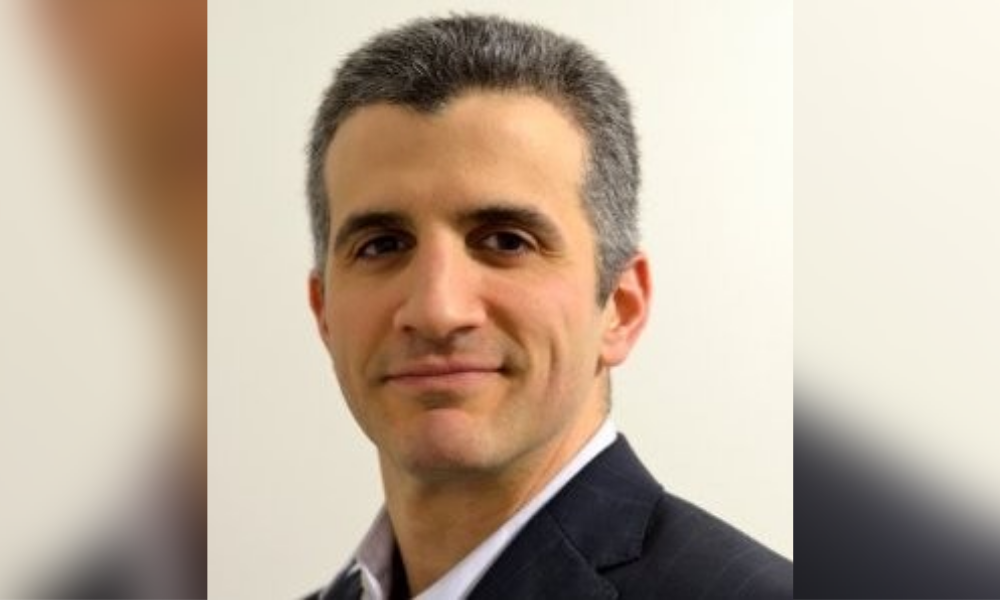
Most people would never make connection with 'sexual abuse,' says health professional lawyer

Alexandru Tanase, a dental hygienist, convicted of sexual abuse for cleaning his wife’s teeth and whose license was revoked by the College of Dental Hygienists of Ontario, has applied for leave to appeal to the Supreme Court after attempts to overturn the penalty at the divisional and appeal court failed.
“We filed an application for leave to appeal to the Supreme Court of Canada and are awaiting a decision on whether leave will be granted,” says Seth Weinstein, Tanase’s lawyer.
Daniel Freiheit, a lawyer representing doctors and hygienists in corporate and regulatory compliance matters, says if the decision stands, Tanase risks losing his income as a dental hygienist and will be seen as having committed sexual abuse under the statute even though his wife would strongly disagree with that label.
“Doesn’t that violate some charter rights, telling the world that this person is guilty of sexual abuse when most people would not ever make that connection [including] the victim/spouse themselves?” says Freiheit.
In Tanase v. College of Dental Hygienists of Ontario, Tanase’s wife feared dental treatment and had not received treatment for years. He provided dental hygiene treatment to his wife in 2016 after a colleague advised that the CDHO approved a spousal exemption for dental hygienists. The CDHO received a complaint about the treatment after another member saw a Facebook post of Tanase’s wife expressing her gratitude for her treatment. As a result, the CDHO conducted a hearing and found Tanase guilty of professional misconduct and invoked the mandatory revocation of his license to practice in 2018. In addition, his discipline history was to be entered in the College’s public registry.
Under s. 51(1) of the Health Professions Procedural Code to the 1991 Regulated Health Professions Act, which governs Ontario’s health professions’ colleges, it is professional misconduct if a health professional sexually abuses a patient, and there is a mandatory revocation of the professional’s licence for five years. The zero-tolerance policy act defines sexual abuse as any sexual intercourse or other types of sexual relations with a patient. Thus, consent is unnecessary, and the interpretation of a patient includes a spouse.
Subject to the approval of the health council lieutenant governor and the minister of health, an exception regulation was added to the code in 2013 that if a college has spousal exception provision, a member treating a spouse does not constitute sexual abuse of a patient.
In 2015, the CDHO submitted a spousal exception regulation to the Ontario government to permit dental hygienists to treat their spouses without it constituting sexual abuse, provided a sexual act did not occur in the practice of the profession. However, this exception did not come into force until October 8, 2020.
The Divisional Court stayed the CDHO’s decision to revoke Tanase’s license pending appeal of the decision but dismissed the appeal on September 9, 2019. Tanase petitioned the divisional court’s decision before the Ontario Court of Appeal, and the revocation order stayed yet again pending the appeal court’s decision. In July 2021, the appeal court upheld the CDHO and divisional court’s decision and dismissed the appeal, and the CDHO revoked Tanase’s license.
Tanase argued before the divisional court that the decision of the CDHO infringed his s. 7 rights of health professionals and their spouses and s. 12 rights to be free of cruel and unusual punishment under the Canadian Charter of Rights and Freedoms.
Citing R. v. Schmidt, 2014 ONCA 188, the divisional court wrote that the imposition of professional consequences due to Tanase’s misconduct did not affect his right to liberty or security under s. 7 of the Charter, which does not protect economic interests. The Divisional Court also rejected the argument that mandatory revocation constituted cruel and unusual treatment under s. 12 of the Charter.
At the Court of Appeal, Tanase held that the RHPA’s zero-tolerance scheme involving sexual relationships between patients and health professionals infringed s. 7 or s. 12 of the Charter and that preceding case law deciding otherwise should be distinguished or reversed. He argued the appellate court should consider the legislature’s actual intent, which he said was to prohibit sexual abuse of patients while permitting regulated health professionals to treat their spouses in circumstances where sexual abuse is not present.
The appeal court upheld the divisional court’s ruling. It relied on Mussani v. College of Physicians and Surgeons of Ontario, stating there is no constitutional right to practice a profession, and ss. 7 or 12 of the Charter does not protect the penalty of mandatory revocation of a health professional’s license.
The court dismissed Tanase’s submission that the zero-tolerance policy infringed s. 7 or s. 12 of the Charter, saying that while a revocation is a severe penalty, the decision is not absurd because it follows legislature’s judgment that sexual abuse in the regulated health profession is better prevented by imposing a “bright-line rule” that prohibits sexual relationships with patients.
Freiheit says it is time the court modernizes its approach to "security of the person" to include economic interests and recognize the state-imposed psychological stress these proceedings imposed upon Tanase.